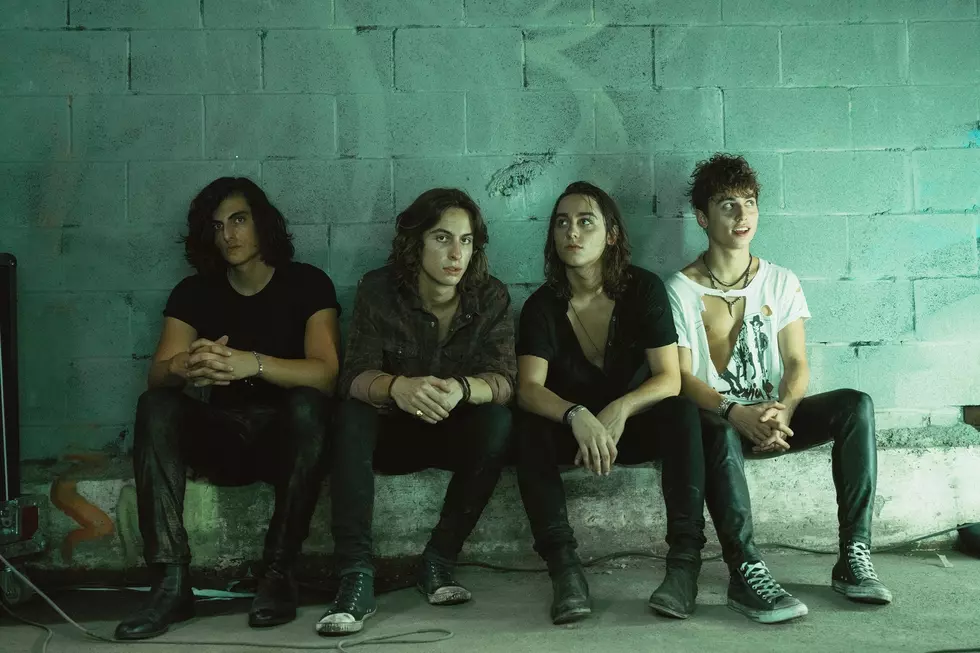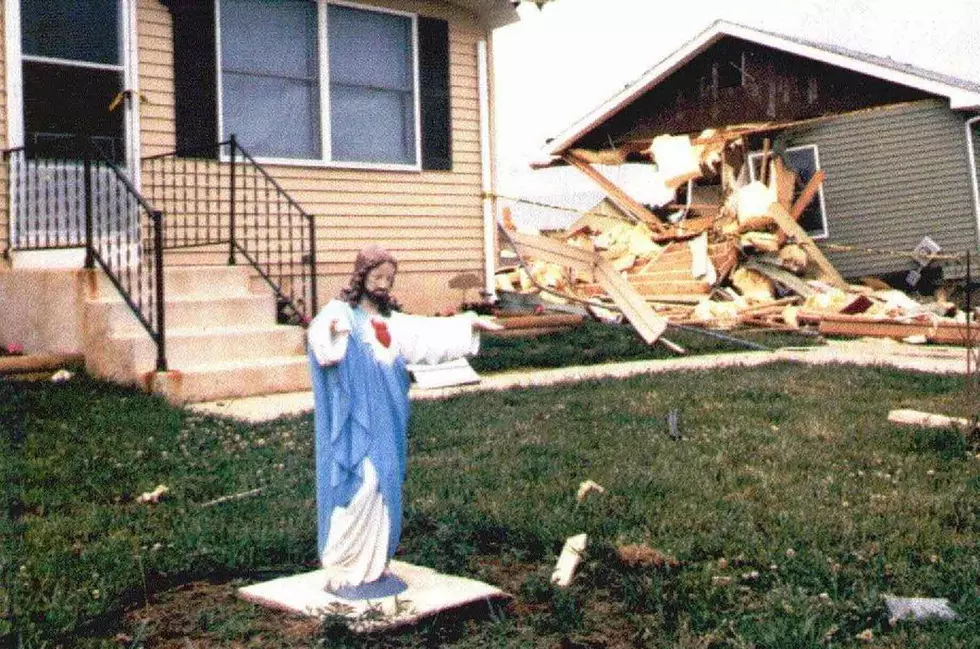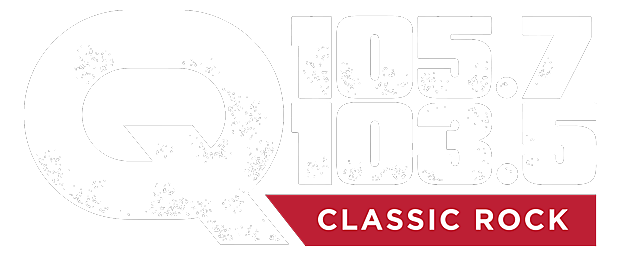Guitarist Bill Frisell Shares Memories of Working With Rock Greats: Exclusive Interview
However we might struggle to define it by genre, music is just music — and few artists reflect that borderless spirit more brightly than Bill Frisell. Since releasing his first recordings in the early '80s, he's followed a singular creative path, moving between bursts of avant-garde skronk and moments of breathtaking melodic beauty with seeming ease, and that unique breadth — along with his signature tone — have made him an in-demand collaborator for a long list of artists from a wide array of musical disciplines.
Nominally a jazz artist, Frisell's playing is solidly rooted in the blues and folk idioms. It's a spirit reflected in some of his more pop-rooted solo efforts, it serves as a through-line that sings through his many guest contributions for other artists, and it's echoed in the name of his latest album, a collection of solo performances simply titled Music IS.
With Music IS making its way to stores March 16, Frisell sat down with UCR to share his memories from a few of the thousands of sessions he's been a part of over the years. Check out "Rambler" from the new album above — and read on to get an inside perspective on what it's like working with Bonnie Raitt, Joe Jackson, Paul Simon, Elvis Costello and Ginger Baker.
Bonnie Raitt
I've been a fan of hers for ... I don't know. I can't even remember when I first heard her music. I think we're close to the same age, but she was doing stuff long before I was, and her connection with all the history of the folks she's been with is kind of mind-blowing. I don't remember exactly when it was but I was playing, I guess it was in San Francisco, and there she was. I got to meet her and it was like, Wow, Bonnie Raitt came to see me play, you know? It blew my mind.
She's so open to so many different kinds of music, African music — we actually had some common friends and musicians from Mali that she knew. It wasn't any kind of star thing, it was just like a musician that was interested in my music. She came to a number of my gigs, and I got to know her a little bit that way, and then eventually, there was this album, Joe Henry produced it and asked me to be part of it. It was this super comfortable situation, because I was also friends with Joe and had worked with him a number of times, and we were recording in his house — which is a beautiful studio, but it's not like this real formal, uptight, studio situation. You're in this really cool basement. I was friends with the other guys, so it was kind of the perfect setup for just hanging out and playing.
It was a thrill to get to play with her. Then after that, I guess a couple times she invited me to sit in with her. It was just in Seattle, she was playing, she'd come to town to play and she asked me to sit in with the band on a couple songs. She's just a beautiful person, you know?
I think there's just so many connections that maybe aren't obvious on the surface, but I've been fascinated with that music from Mali or African music, and she has that. Of course, the blues thing is so deep. Maybe it doesn't come out as obvious in some of my stuff, but really, that's what got me fired up in the first place, so it's in there. She's just so open, and she hears where stuff's coming from.
Joe Jackson
I was so surprised — that came more completely unexpectedly, I think. I'm not that familiar with his ... I don't know that much about his full thing. I was in New York playing this gig, and he just showed up and said, "Would you like to play on this record?" And of course, you know ...
It's kind of wild how the older I get, there's the connection, things start coming around, like someone that I met 40 or 50 years ago, or some seed that was planted long, long, ago. If enough time goes by and you're playing with more and more people, eventually somehow it comes around.
What was challenging for me with him was that he knew exactly what he wanted. I mean, the vibe was totally cool, but usually if someone calls me to play on a record, I'll go. I've been really lucky with that, where people are familiar with what I do and they just kinda let me go. With him, it was much more controlled. He had this very specific idea, so I learned the music — and they were these amazing tunes. I sort of did my usual whatever I would normally do to prepare, and I went in and then I just started playing. My impression was, "Okay, well, that was that. We've got that one." But I was wrong. He had something very clear in his mind that he wanted, he was looking for something. It was more challenging in that way for me, to try to get what it was that he was looking for.
Paul Simon
I'm thinking back when I first started, after I first got a guitar — I'm in like eighth grade, ninth grade, and those Simon and Garfunkel records came out. I still remember where I was when I heard those songs for the first time when they first came out on the radio, and when I first bought those records. I was taking lessons at the Denver Folklore Center. I mean, that stuff is so deep in my DNA.
Then, again, these connections. How in the world did I end up — I guess I first met Paul maybe 40 years later or something, but you know, it's like a lifetime has gone by. I had no idea that he would have been aware of what I was doing — I thought we traveled in different circles. But I got a message that he wanted to just get together and just sort of meet me and talk about music.
I was invited to just come over to his place and he just wanted to talk about guitar and music, so I went over there and he played me some stuff he was working on. We ended up playing a little bit, just playing guitars together. It was just an introduction, just a meeting, but it was incredible, mind-blowing for me. He played me things that he was working on, and I got a little insight. I got to actually look into his creative process a little bit. It was incredible, generous, openness that he showed me. He talked about all kinds of stuff. It was really a far out, interesting conversation. But I didn't even know that he was gonna ask me to play or anything — I think it was later he asked me to play on [2006's Surprise LP].
There were some specific things, where he had me play to things that he'd already done, and then we also did some improvising with little ideas, like where we both played guitar at the same time. At that time, I wasn't used to having that much time in the studio, either. We're in this big studio in Manhattan and it was just the two of us, and we're just ... normally I'd be counting the hours and watching the budget go up, so it was really far out to just have that amount of time with him — and again, to see how he creates the melodies that he comes up with. There was one tune where he hadn't gotten the words yet or something and he was sort of just singing a melody and it was like, "Wow, that sounds like a Paul Simon song" — well, that's Paul Simon.
More recently, I've done a few other things with him, where he's been going back and looking at some of his older songs, something that was on an album that maybe he felt it was a good song but it never really got the attention. I've done like three or four songs with him recently. Some of them started out just with the two of us again, and that was incredible. Again, he's really, really generous, and it just kind of blows my mind that he's really sensitive to what I'm doing and respectful of it. It's very inspiring just to see a little bit into the process he goes through, the struggle he goes through to get stuff out, and the commitment and everything, he's an incredible musician.
More recently, I got to play on The Colbert Show with him, just me and him. That was the only time I've played live with him. In the studio, he's so meticulous and careful and he really struggles over every little detail, but when we played live it was like, you know, we're just playing, and he let me just play the way I play.
Elvis Costello
I met him through Hal Willner. I've done just countless things with Hal, and Hal's been one of the first people that ever trusted me to ... actually the very first recording that has my own name on it was with Hal. When I first moved to New York — this Nino Rota tribute album. No one even knew who I was at that time, but just on the word of a mutual friend — a guy named D. Sharpe, who was playing with Carla Bley's band — Hal just met me and let me do a piece on that album. Starting from there, we've done ... I don't know, it's like dozens and dozens of things together.
Through Hal I've met — I can't even begin to tell you. It's how I met Elvis, I met the guys in U2, I met Daniel Lanois, I met Van Dyke Parks, I met ... oh my God, it's just insane. Brian Eno. It goes on and on. The things that have happened with Hal, it could be a whole book there, but he did a tribute album to Charles Mingus and I played on that whole album, and one of the guest people on there was Elvis, and that's how we met, just on that recording. We just connected. Soon after that, Elvis was doing this Meltdown Festival in England, where he was curating the whole festival, and he asked me to come there and be a part of the festival. It was there that I did a duet with him that ended up being a, it's kinda hard to find now, but it was a live album just from that one concert. But he also invited me to have my own band there. He invited me to write an arrangement for him for a little chamber orchestra thing.
Boy, it's weird, when I think back, I don't remember how far back that was, like possibly even the late '80s or very early '90s when I first met him. He's so open to ... I mean, talk about an encyclopedic knowledge of just music in general. He knows about everything. I mean, not that long ago, I was playing with Ron Carter at the Blue Note and he came to see us play there. Or if I'm playing at the Village Vanguard, he'll come down to check me out there. He loves music. We've gotten to do quite a few things together over the years.
Ginger Baker
Again, it's like I was talking about hearing Paul Simon when I was whatever age I was. Well same thing: I went to see Cream. I saw them play when I was in high school, and it's like if you had ever told me back then that I'd be playing with this guy, there's no way I would have ever believed it. It's just way beyond anything I could have ever imagined.
My experience with him is ... yeah, I know he has this reputation, whatever that is, you know, that movie and all that stuff. I had shaken his hand once, somewhere in the, I don't know when it was, in the '80s or something. I was at some festival and somebody introduced me to him and I shook his hand and he sort of walked away. But then to do this album, basically ... I hadn't met him, right? It was set up by Chip Stern, who produced the album, he had had this in his mind for a long time, he was hearing the sound of Charlie Haden and me and Ginger playing together. He knew Ginger, and through his determination, he wanted to get us together, and by some amazing luck it happened that the record company got on board and Ginger was willing to do it, and Charlie was willing to do it.
I knew Charlie Haden already before, luckily. If I'd walked in there not knowing Charlie or not knowing Ginger, I probably would have had a nervous breakdown. At least I knew Charlie and we had a relationship already, so that helped me, but I didn't really know what I was getting into. I'm basically like the guitar player on whatever it is, it's just a job, so okay, I'm gonna go play. I show up at the studio and Ginger's setting up his drums, and I didn't even know if he knew what he was getting into, or if he had any idea who I was or what, so I just walked up to him and said, "Hi. My name's Bill and I'm playing guitar." He sort of just, you know, said, "Okay, cool." I'm like, "Oh god, what's gonna happen?"
I go and set up my stuff, and Charlie comes in. Then we start playing. What are we gonna play? I don't even remember what the first tune was, but the moment we started playing, he kinda started smiling — it was like the music took over, and it was incredible. It was pretty instantaneous as soon as the music started that we were just musicians in the room playing music, and it was just so fun and no bullshit. It was like just having a jam session.
I never saw any of the stuff with him that people talk about. What I always got from him was that he's actually kind of a shy person and he really loves music, you know? His respect and love for the music is really intense. It's for real. I think where he gets upset is where that's not being either recognized — either his own, or if someone he respects is not getting the respect. It hurts when you ... It's kind of serious for music, you know? You spend your whole life with it, and then if it's not being honored, it hurts. That's what came across for me when we worked together.
Top 100 Classic Rock Artists
More From Q 105.7










